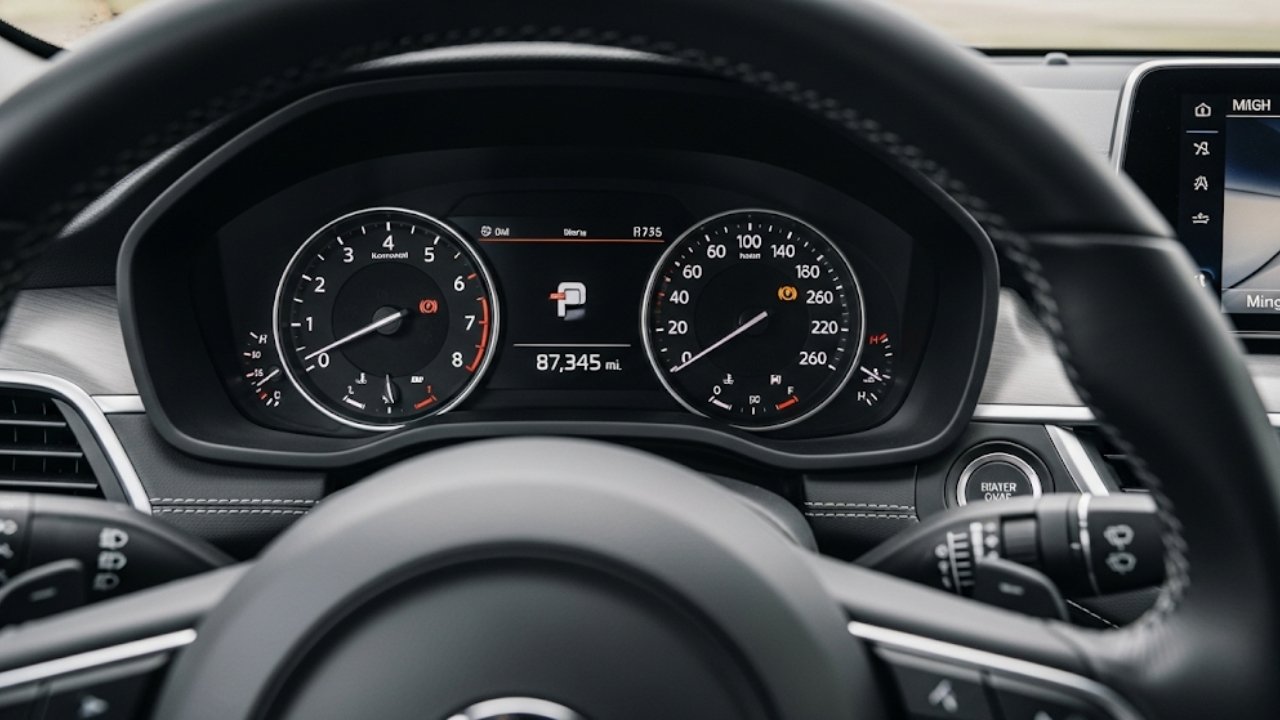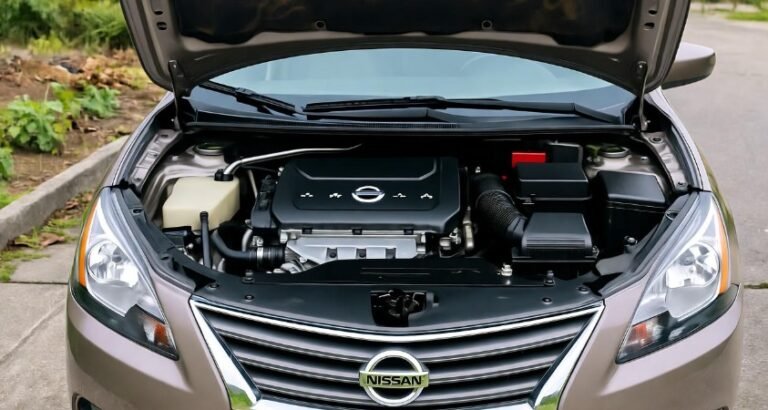Does Towing a Car Put Miles on It?

You’re heading out on a weekend road trip. Excited, snacks packed, playlist ready. And boom — your car breaks down right outside the city. The only option? Call a tow truck. While you’re sitting in the passenger seat of the truck watching your car roll away behind, one question hits you: Does towing a car put miles on it?
It’s a question many car owners wonder about — and rightfully so. Your car’s mileage affects its resale value, maintenance schedule, and even how much people trust its history. Adding miles when your car isn’t even running? That feels unfair, doesn’t it?
Let’s break this topic down with empathy, experience, and a sprinkle of science. You’ll walk away knowing exactly what towing can and can’t do to your odometer — and a few secrets most people miss.
What Does the Odometer Actually Track?

But how does it work?
-
In older vehicles, the odometer is mechanical. It runs based on the rotation of the wheels. If the wheels turn, the odometer rolls forward.
-
In modern cars, it’s electronic. The odometer tracks data from the vehicle’s transmission or speed sensors. If the car isn’t “on” and running, the miles typically won’t count — even if the wheels are spinning.
Here’s a quick breakdown in table form:
| Type of Vehicle | How Odometer Works | Miles Added When Towed? |
|---|---|---|
| Older (pre-90s) cars | Mechanical – connected to wheels | Yes, if wheels spin |
| Newer (modern) cars | Electronic – connected to transmission | No, unless car is on |
So, if you’re driving something from your grandpa’s era, it might add miles when towed. But if you’ve got a newer ride with digital displays and sensors, you’re probably safe.
Different Types of Towing: Not All Are Equal
Here’s where things get tricky. Not all towing is created equal. Depending on how your car is towed, the impact on your odometer changes drastically.
Let’s break down the three major towing methods:
1. Flatbed Towing (All Wheels Off Ground)
-
The entire car is lifted onto the tow truck.
-
Wheels don’t move at all.
-
Zero chance of the odometer increasing.
This is the safest, cleanest method. No mileage, no wear and tear. It’s like your car is taking a ride in a private limo.
Verdict: ✅ No miles added.
2. Dolly Towing (Front Wheels Lifted)
-
Front wheels are off the ground, rear wheels roll freely.
-
Most front-wheel-drive cars won’t add miles because the transmission isn’t engaged.
But — if your car is rear-wheel drive or all-wheel drive, the story changes. Those spinning back wheels can trip the odometer in older models.
Verdict: ⚠️ Maybe — depends on drive type and car age.
3. Flat Tow (All Four Wheels on Ground)
-
Think RVs pulling cars on road trips.
-
All wheels spinning.
-
If your car is older or mechanically based, yes — this can add miles.
Verdict: ❌ High risk of mileage being added, especially for older vehicles.
Front-Wheel, Rear-Wheel, or AWD? It Matters!
If you’ve ever heard someone say, “It depends on your drivetrain,” they’re not wrong.
Here’s how the type of drivetrain affects whether or not towing puts miles on your car:
-
Front-Wheel Drive (FWD): If front wheels are off the ground (on dolly), and engine is off — usually no miles.
-
Rear-Wheel Drive (RWD): If rear wheels touch the ground — even with engine off — older cars may add miles.
-
All-Wheel Drive (AWD): Trickiest of all. All four wheels spin, and even flat towing can cause issues with mileage and the drivetrain itself.
Simple Tip: If in doubt, always ask for flatbed towing. It’s safest for both your car’s mileage and mechanics.
Personal Story: The Time I Towed My Dad’s 1990 Sedan
Back in college, my dad gave me his 1990 Oldsmobile Cutlass. It was a tank. Steel body, cassette player, and a mechanical odometer that clicked every 1/10th of a mile.
One winter, the engine stalled in the middle of nowhere. I called a local tow service. The guy showed up with a dolly and lifted the front wheels.
When I got the car back home, I noticed something odd: the trip odometer showed 12.4 miles more than before.
Yep — even though the engine was off, the back wheels had been spinning. That old-school odometer didn’t care. Lesson learned the hard way.
If I’d chosen a flatbed? That number wouldn’t have moved at all.
So when someone asks, “Does towing a car put miles on it?”, I tell them — sometimes yes, sometimes no — but flatbed is your best friend.
Key Takeaways (So Far) – Mileage and Towing at a Glance
Here are the core facts to keep in mind:
-
Modern electronic odometers don’t track miles if the engine is off.
-
Mechanical odometers might record miles if the wheels spin, even during towing.
-
Flatbed towing never adds miles.
-
Dolly or flat towing might — depending on the car’s drivetrain.
-
Always consult your owner’s manual or ask the tow service for the safest method.
Here’s a quick bullet point guide to remember:
-
✅ Flatbed = zero miles.
-
⚠️ Dolly = check your drivetrain.
-
❌ Flat tow = risky for older models.
-
Mechanical odometer = likely to increase miles if wheels turn.
-
Electronic odometer = safe if engine off.
How Mileage Affects Car Value — And Why It Matters
Now, let’s get real. One of the biggest reasons you’re asking “does towing a car put miles on it” is because of resale value. And that’s fair — because mileage can seriously change how much your car is worth.
Imagine this:
You’re selling your car. It’s spotless, just serviced, but the buyer sees it has 138,000 miles instead of the 135,000 you thought it had. That’s three thousand miles you didn’t even drive! But they still count against you.
Why Buyers Care So Much About Mileage
-
Mileage tells a story: Buyers use it to guess how much life the car has left.
-
Higher mileage = lower resale value: Even small changes matter.
-
Service intervals depend on mileage: Miss a timing belt change because of surprise miles? Risky.
-
Lenders and insurers care: Your premiums may change based on usage.
So, if towing is adding phantom miles, you could be losing cash — or trust — over something preventable.
️ Warranties and Towing — What’s Covered, What’s Not
Here’s a curveball: What happens if you have warranty coverage?
Some warranties are strictly based on mileage. If your car is still under warranty at 60,000 miles, and you unexpectedly hit that number early because of how your car was towed, you might void coverage before an issue even comes up.
Worse, dealerships and manufacturers don’t always care how the miles got there. Mileage is mileage in the system.
What to do?
-
Keep a record of towing receipts.
-
If you suspect mileage was added unfairly, document it immediately.
-
Contact your warranty provider to explain and clarify.
Some warranties also exclude towing-related damage. If you used an improper method (like flat towing an AWD car), you could be on the hook for costly repairs.
Insurance Considerations — The Invisible Impact
Insurance companies are sneaky about mileage. When you sign up, you give them an estimated annual mileage. It helps determine your:
-
Premium costs
-
Risk category
-
Policy terms
If you’re adding unexpected miles from towing (especially over time), you may unknowingly invalidate your rate class.
For example:
Let’s say you report 8,000 miles per year, but thanks to multiple flat tows, your odometer shows 9,500. That might trigger a red flag at renewal.
Insurers also use odometer readings after a claim to compare wear and tear. So if the car wasn’t driven, but has extra miles, they may question it.
Pro tip? If your car was towed, and you’re worried about mileage, inform your insurer. Transparency pays off in the long run.
Common Myths About Towing and Mileage — Busted
Let’s clear the air. There’s a lot of bad advice floating around about whether towing puts miles on your car. Let’s bust some myths:
| Myth | Reality |
|---|---|
| “Towing always adds miles.” | ❌ Not true. It depends on how the car is towed and the type of odometer. |
| “All modern cars are safe from this.” | ❌ Most are, but not all. Some early 2000s vehicles still used hybrid systems. |
| “If the wheels spin, it must record mileage.” | ❌ Only mechanical odometers track based on wheel spin. Electronic ones need power/signal. |
| “You can reverse towing mileage by unplugging the battery.” | ❌ Nope. Mileage data is stored digitally — and tampering is illegal. |
Knowing what’s fact and what’s fiction can save you stress — and maybe even some money.
What to Do If Towing Added Mileage to Your Car
So what if the worst happened?
You had your car towed, and the odometer went up — and it shouldn’t have.
Here’s what to do next:
Step 1: Gather Evidence
-
Tow company receipt
-
Photos of odometer before and after
-
Date and time of the tow
-
Type of tow truck used
Step 2: Contact the Tow Company
Explain your concern politely. Some reputable companies will offer to write a statement confirming the car wasn’t driven — especially useful for warranty or legal disputes.
Step 3: Talk to Your Mechanic
Have them inspect the odometer system if you suspect a malfunction. Sometimes, sensors go haywire, especially after long-distance or high-speed tows.
Step 4: Alert Your Warranty or Insurance Provider
Get ahead of the issue. They may note it on your record or advise next steps.
✅ Quick Pre-Tow Checklist: Avoid Mileage Mishaps
Before you call a tow truck, here’s what to double-check:
✔️ Know your drivetrain: FWD, RWD, AWD
✔️ Ask for a flatbed tow — especially for newer or AWD cars
✔️ Take a photo of your odometer before towing
✔️ Clarify the tow method with the operator
✔️ Keep all tow documents for your records
Doing these five things could save you a major headache later.
FAQs — Does Towing a Car Put Miles on It?
1. Does towing a car put miles on it even if the engine is off?
Only in certain cars. Older vehicles with mechanical odometers might add miles if wheels are spinning. Modern cars with electronic odometers usually don’t — as they require the engine to be on.
2. Does flatbed towing add miles to your car?
No. Since all wheels are off the ground, they don’t rotate, and there’s no data for the odometer to track.
3. Will towing my AWD car add miles?
If it’s done improperly (flat towing), yes — and it can also damage your drivetrain. Always choose a flatbed for AWD vehicles.
4. Can you reset or remove miles added from towing?
No, and attempting to do so is illegal. Odometer tampering is a crime in most regions, even if the miles were added unintentionally.
5. What if the tow truck company used the wrong method?
Gather all records and speak to the company. If damage or extra mileage occurred due to negligence, you may have a case for compensation.
6. Do car manufacturers count tow-related mileage for warranties?
Usually, yes. Mileage is mileage in most systems — so even if it was caused by towing, it still counts.
7. Can I refuse a tow method if it risks mileage being added?
Absolutely. You have every right to request flatbed towing to avoid unnecessary wear and mileage.
8. Is it better to drive short distances instead of towing to avoid added miles?
Not if the car is unsafe or undrivable. A proper tow (with flatbed) won’t add mileage and is often the safer option.
Final Thoughts: What You Now Know
So let’s circle back to the big question:
Does towing a car put miles on it?
✅ Sometimes — but not always.
✅ Depends on your odometer, tow method, and drivetrain.
✅ Flatbed is your best bet to avoid problems.
The key takeaway here? Knowledge is power. Don’t just leave your car’s future up to the tow truck driver. Ask questions. Take photos. Keep records. And if you’re ever unsure — request a flatbed.
Because in the end, you shouldn’t have to pay — in miles or money — just for doing the responsible thing.





